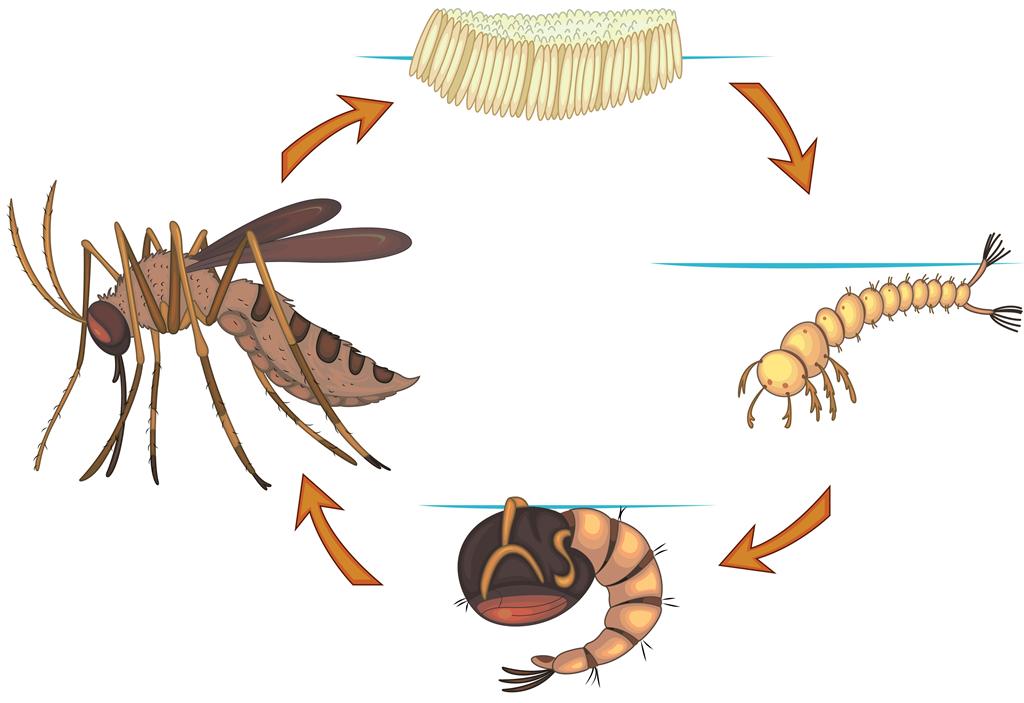Mosquito Life Cycle
Mosquitoes are classified in the order Diptera (true flies) and have four distinct life stages during their complete metamorphosis (egg, larva, pupa, and adult). Female mosquitoes lay their eggs on either water or moist soil or interior walls of tree holes, cans, buckets, and old tires that are likely to be flooded by water.
All mosquito eggs must have water to develop. Most species prefer slow-moving or stagnant water in which to lay their eggs. Mosquitoes can complete their life cycle within 7 to 10 days during the summer months. Eggs hatch within 48 hours and larvae and pupae live in the water for about a week. Adult mosquitoes will emerge from the pupal case (a process known as eclosion) and rest on the water's surface until the body dries and hardens before flying away. The life cycle stages can easily be seen in the water.
Mosquitoes mate shortly after emerging as adults. Female mosquitoes require a blood meal before they can lay their eggs. They bite every few days during their entire adult lives, which may last several weeks.
Both male and female mosquitoes feed on plant juices and nectar as a source of nourishment for flight and other activities. Although male mosquitoes have a proboscis (needle-like mouthpart), only the female mosquito takes blood. Blood provides protein for egg production. Female mosquitoes take blood not only from humans, but from birds, frogs, snakes, and other mammals (dogs, cats, cattle, horses, etc.).
